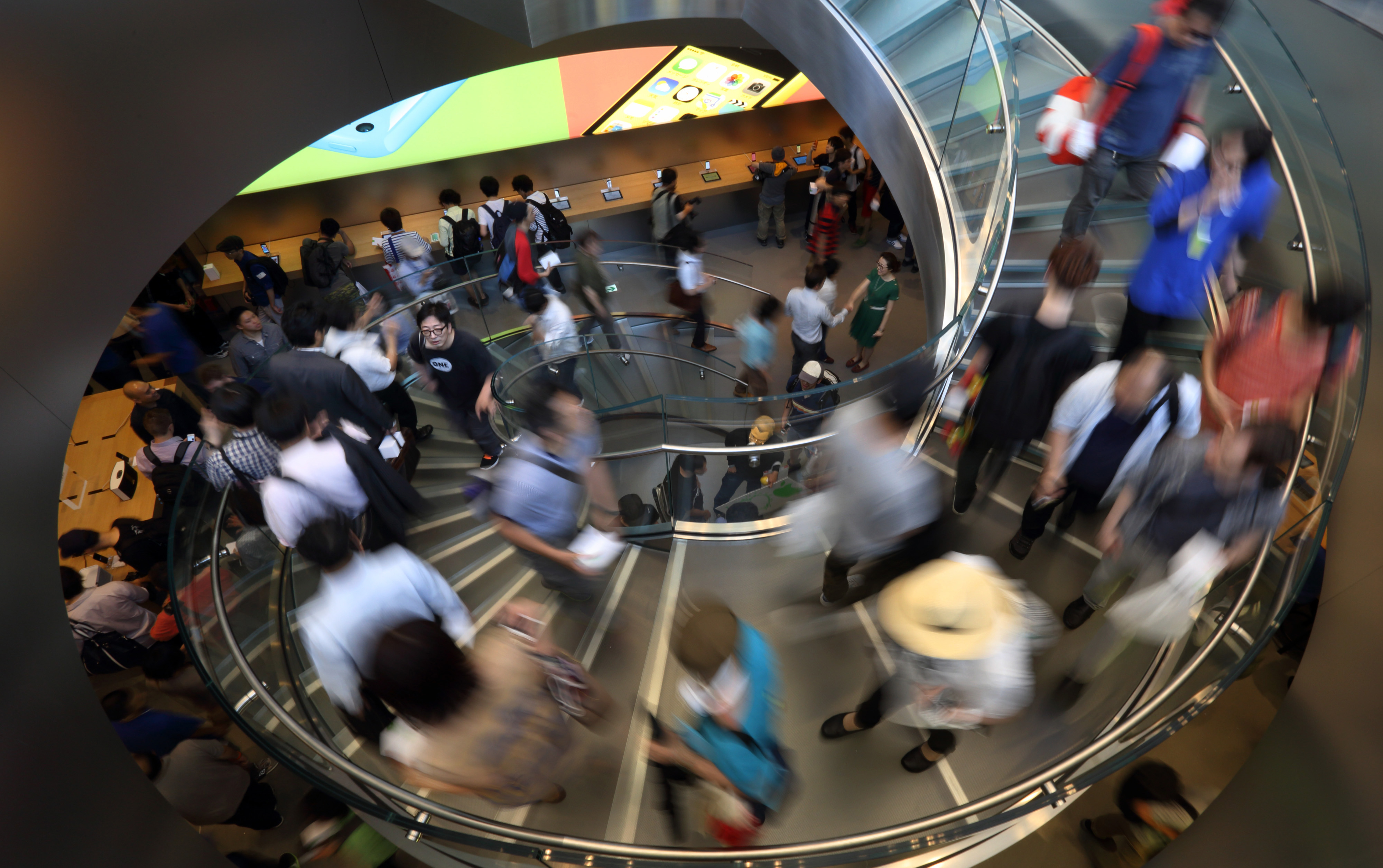Consumer prices climbed in May at their fastest pace in 32 years, swelled by the hike in the consumption tax and higher utility charges that are squeezing Japanese budgets as wage gains remain limited.
Consumer prices excluding fresh food but not energy, rose 3.4 percent from a year earlier, the Statistics Bureau said Friday, matching the median forecast in a Bloomberg survey of 30 economists.
Household spending subsequently sank 8 percent, more than the forecast fall of 2.3 percent, separate data showed.
Accelerating inflation is a boost for the Bank of Japan as it targets 2 percent inflation — a goal that strips out the impact of April's 3 percentage point tax rise. At the same time, wages are failing to keep pace with price gains.
"It's likely CPI gains will slow down from here and stay around 1 percent as the impact of a weak yen and energy prices fade," Takuji Aida, chief economist at Societe Generale SA in Tokyo, said before Friday's report. "The key is wage growth" as pay rises are needed to support inflation, Aida said.
In an interview this week, Prime Minister Shinzo Abe declared the end of the deflation that wiped out much of Japan's growth over the past 15 years.
Wages excluding overtime payments and bonuses fell for a 23rd month in April. Regular gasoline prices were the highest since September 2008 as of Monday, according to the trade ministry.
All 14 major gas and electricity companies raised prices from May to the highest level since the current pricing system began in May 2009, according to the Asahi Shimbun. Tokyo Electric Power Co. announced a price hike of 5.3 percent in May for households, reflecting the higher tax, rising energy costs and other factors.




